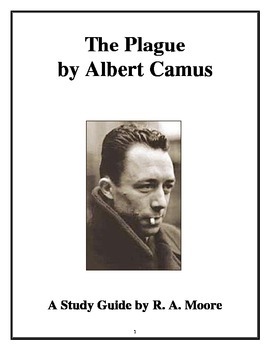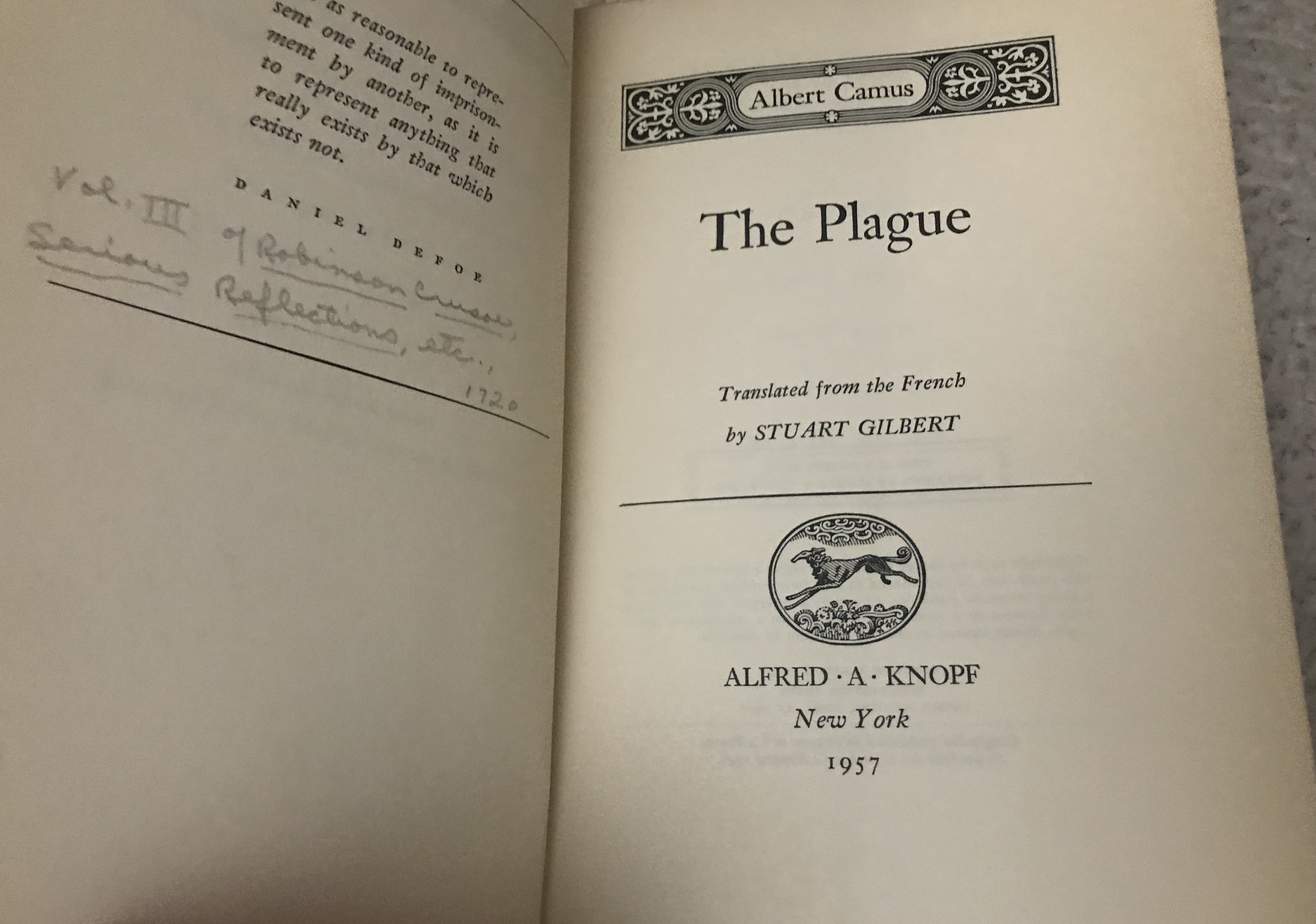

He is announcing the deaths of many people, common people, and as spectators, we will wait, watch, hear, and perhaps learn from the consequences of the everyday Oedipuses and Creons of Oran - citizens warned again and again of their fate to die, yet who choose to be unbelieving, antagonistic, and indifferent to the warning. This is, in a sense, what Camus is doing in the opening scenes of The Plague. A man only begins living, according to Camus, when he announces in advance his own death to himself and realizes the consequences.

While reading this novel, one should remember that Camus has an initial prerequisite for an understanding of his philosophy of the absurd: a realization and recognition of the fact of one's own death. Here also we know in advance the horrible fate in store for the characters, and we watch as the scenes unfold the familiar fate and the agony of, say, Oedipus or Creon. This technique, it is worth noting, is somewhat similar to that of a Greek tragedy. It is also underscored in the first chapter.

Britannica Explains In these videos, Britannica explains a variety of topics and answers frequently asked questions.


 0 kommentar(er)
0 kommentar(er)
